 Everybody is chasing money these days. However, the emerging investment opportunities might fail to meet our expectations. The goal is to get a profitable interest rate that will bring us a high return on investment (ROI.) This article will examine one of these investment opportunities: opening a catchy-sounding money market account. So, join us if you’re interested in an investment that can (potentially) change your life for the better and the best money market rates! But how do money market accounts work? Can you lose money in a money market account? We will find the answers shortly!
Everybody is chasing money these days. However, the emerging investment opportunities might fail to meet our expectations. The goal is to get a profitable interest rate that will bring us a high return on investment (ROI.) This article will examine one of these investment opportunities: opening a catchy-sounding money market account. So, join us if you’re interested in an investment that can (potentially) change your life for the better and the best money market rates! But how do money market accounts work? Can you lose money in a money market account? We will find the answers shortly!
Which are the better-paying alternatives to money market accounts?
During uncertain financial times, it’s only reasonable to ask yourself how to bypass the curse of inflation and make money. Apparently, many investments depreciate along with your cash reserves. The solution would be investing in assets that withstand even recession. Off the top of our minds, we suggest investing in government-backed bonds and stocks, and REITs that hold up to inflation. These will earn you a reliable side income through (not too spectacular but continuous) dividends.
Suppose you have the ability to dispose a more considerable sum of money and intend to benefit from a more significant ROI. In that case, we recommend real estate as the best starter property for investment. If rental properties, purchasing Airbnbs, or house-flipping get you hooked, contact experienced local real estate agents in your area for further information! At the same time, can the money market hold a candle to the real estate market?
What are the money market’s fundamental principles?
To understand the definition of the money market, we must first inspect its counterpart, the capital market. Capital markets are financial markets where governments and companies issue shares and bonds to raise long-term funds or capital.
As opposed to capital markets, think of money markets as the platform where governments and firms issue short-term instruments to meet their temporary borrowing needs. Money market instruments have a much shorter life span (even three months or less) between the issue date and maturity. They will always be at most one year, though.
What are money market accounts?
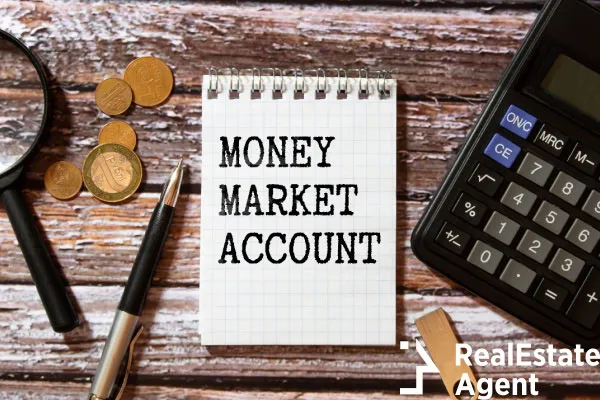 Savers ready to extend their investment portfolio often bump into the questions: What is a money market account, and how does a money market account work? A money market account works as a deposit account. It serves to earn a lucrative yield similar to numerous traditional savings accounts. Suppose you open a money market account at a credit union or bank (online or in person.) Then you can also benefit from check-writing privileges and check and debit cards.
Savers ready to extend their investment portfolio often bump into the questions: What is a money market account, and how does a money market account work? A money market account works as a deposit account. It serves to earn a lucrative yield similar to numerous traditional savings accounts. Suppose you open a money market account at a credit union or bank (online or in person.) Then you can also benefit from check-writing privileges and check and debit cards.
Let’s address the elephant in the room right away! We’re talking about liquid deposit accounts. Thus, you can access your funds effortlessly. For this reason, don’t expect high-interest rates on your investments! Typically, money market accounts are limited to six transactions monthly. Banks provide clients complete transparency when opening a money market account, like in real estate finances.
What is a money market account vs savings account?
 Checking and savings accounts are popular in the States, but many people need clarification about money market accounts. Is a money market account a savings account? Is there a difference between the money market and traditional savings?
Checking and savings accounts are popular in the States, but many people need clarification about money market accounts. Is a money market account a savings account? Is there a difference between the money market and traditional savings?
Money market accounts pay a little bit more interest than regular savings accounts. The best money market rates are based on the current interest rates in real money markets. In finance, these are the interest rates that come with short-term loans.
So, why would anyone open one if savings accounts don’t pay much? For starters, savings accounts don’t require a minimum balance. Initially, a money market account required a $25,000 balance. By 2023, several banks had removed the minimum balance (or deposit) requirement. However, the same banks also reduced the interest rates, reaching the same or even less than savings account rates.
Which one do we recommend: a money market account vs a savings account?
Banks have established a tiered system of interest rates for money market accounts the investor can qualify for based on the cash they keep in their account. On the other hand, a savings account comes with an almost non-existent interest or an insignificant amount of pocket money.
We recommend sticking with your savings account for writing checks and debit card purchases. If you need an emergency fund, opening a money market account will give you better interest! Plus, unlike when opening a savings account, you won’t be tempted to spend your money. Moreover, you can access your emergency fund easily!
There’s one hard-to-swallow financial tip to both of these investments. You won’t earn any substantial income with either of them. Remember, building a nest egg starts at home!
Which are the best money market rates?
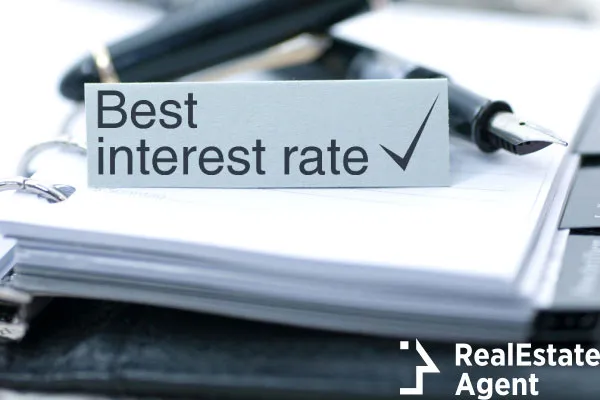 You must know that every bank establishes its own interest rate for its money market accounts. The average money market rate is 0.07 percent APY (the annual percentage yield, the higher, the better!)
You must know that every bank establishes its own interest rate for its money market accounts. The average money market rate is 0.07 percent APY (the annual percentage yield, the higher, the better!)
According to Forbes, the best money market rates are available at the following institutions (as of June 2023).
- First Internet Bank Money Market Savings (can get as high as 5.20 percent APY)
- Vio Bank Cornerstone Money Market Account (4.88 percent APY)
- Quontic Bank Money Market Account (4.75 percent APY)
- TIAA Bank Yield Pledge Money Market Account (4.50% APY)
Are money market accounts safe?
Everybody knows how close the US economy has come to recession. Undeniably, we’re exposed to losing money and financial insecurity daily. No wonder many first-time investors will ask: Can you lose money in a money market account?
Nowadays, no 100 percent safe investment exists. So, we can’t assure you fully about your inquiry, “Can money market accounts lose money?” Nonetheless, the good news is that, compared to other investments, money market accounts enjoy a higher degree of security. On the one hand, banks use such funds to invest in secure and short-term securities or instruments (see the next paragraph!) In addition, these securities are low-risk and liquid (ready to be converted into cash.) Once commercial papers, certificates of deposit, etc., mature, your bank will split the revenue with you.
On the other hand, the independent agency, Federal Deposit Insurance Corporation (FDIC), insures money market accounts to $250,000 per investing company (or depositor.) In other words, if your bank fails, your collective investments per member company will be backed by $250,000 at the most.
Which are the most widely-known money market instruments?
 Imagine the money market with large-scale players like governments, major companies, and banks! Money market instruments are securities that offer vast sums of affordable money to businesses, banks, and the government for a short time. The period might be overnight, a few days, weeks, or even months, but it is usually shorter than a year. The financial markets (to which money markets belong) meet longer-term monetary requirements.
Imagine the money market with large-scale players like governments, major companies, and banks! Money market instruments are securities that offer vast sums of affordable money to businesses, banks, and the government for a short time. The period might be overnight, a few days, weeks, or even months, but it is usually shorter than a year. The financial markets (to which money markets belong) meet longer-term monetary requirements.
Businesses require short-term liquidity since payments for goods and services sold might take months to be transferred. Companies would have to wait until payments for products already sold were received if there were no money market instruments. This would cause a delay in purchasing raw materials and a slowdown in manufacturing the completed product.
Several instruments are used to facilitate short-term liquid asset loans. Let’s discover the most notable ones!
Treasury Bills (T-Bills)
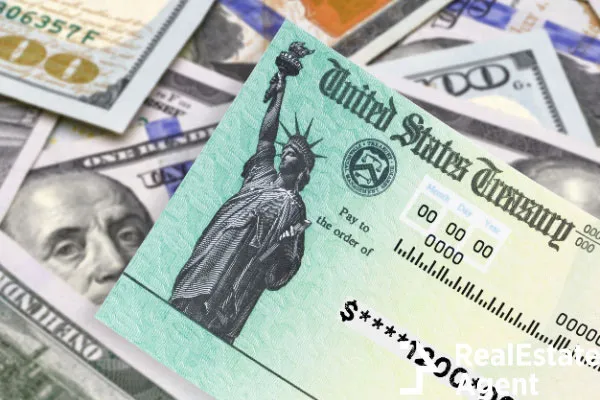 T-Bills are the most widely used and liquid money market asset. The US Department of the Treasury issues them to investors. You can purchase them at the US Treasury's auction website. Its maturity rates are 28, 91, and 182 days. However, only some of them will pay you any genuine interest. The explanation for their incredible success is pretty straightforward.
T-Bills are the most widely used and liquid money market asset. The US Department of the Treasury issues them to investors. You can purchase them at the US Treasury's auction website. Its maturity rates are 28, 91, and 182 days. However, only some of them will pay you any genuine interest. The explanation for their incredible success is pretty straightforward.
Investors pay less for the security than it will be worth when the T-Bill matures. In fact, you’d be buying these bills at a discount. The treasury’s price will increase when it reaches maturity (when you can cash it in.) Therefore, it provides a higher ROI.
The advantage of investing in treasury bills is that there’s virtually no default risk because the US government won’t likely run short of money. Secondly, due to their liquidity, T-Bills can be sold quickly. Plus, no transaction costs are implied. Does opening a money market account for T-Bills pay much? Not really. For instance, if you intend to finance your first home in 2023, investing in treasury bills isn’t the way to go.
Federal Funds (FF)
Financial institutions (such as commercial banks) handle short-term federal funds. They lend or borrow fed funds typically for one day at maximum. It’s a public misconception that they have anything to do with the US government. Institutions can lend these funds (kept at regional Federal Reserve banks) to financially aid participants who lack cash. Due to their high liquidity, investing in federal funds will probably not help anyone create an unbelievable financial success story.
Repurchase Agreements (Repos)
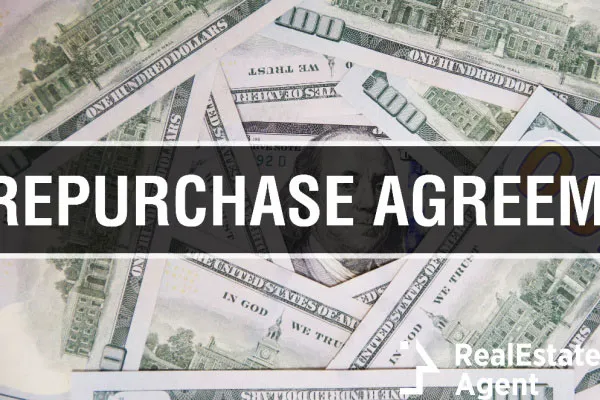 Repos (short-term security loans) work similarly to federal funds. However, institutions other than banks can join in the transactions here. Even a regular company can sell treasury securities in a repurchase agreement. In the agreement, the company commits to redeeming the securities at a later concrete date. It goes without saying that the repurchase price will be higher. The difference between the selling and repurchasing price is called the repo rate.
Repos (short-term security loans) work similarly to federal funds. However, institutions other than banks can join in the transactions here. Even a regular company can sell treasury securities in a repurchase agreement. In the agreement, the company commits to redeeming the securities at a later concrete date. It goes without saying that the repurchase price will be higher. The difference between the selling and repurchasing price is called the repo rate.
The US government can also purchase treasury securities in the repos market. Investing in repos is a feasible solution to managing your personal finances.
Negotiable Certificates of Deposit (NCD)
NCDs are bank-issued securities that prove a money deposit has been completed and determine their interest rates, one of the best money market rates. The security also specifies the maturity date (not longer than a few months.) However, they primarily target large companies or well-off individuals as investors. Opening a money market account for NCDs can result in attractive interest rates.
Commercial Papers (CP)
Commercial papers are labeled as unsecured promissory notes or debt obligations. Regularly, giant corporations issue these securities with a maturity of approximately less than 270 days. Unlike NCDs, investing in commercial papers through money market funds implies that no collateral will back your investment. For this reason, we call them unsecured debt.
CPs will mature within twenty to forty-five days. How can you benefit from investing in them? They work similarly to Treasury Bills, so they have no interest rate. Instead, you purchase them at a discount, and you could end up with a higher profit at selling.
Commercial papers don’t have to be officially listed with the Securities and Exchange Commission because they don’t have any collateral support, and they’re not secured.
Bankers’ Acceptance
Bankers’ Acceptance is extensively used in the international trade market and not so much in the money market. Imagine the following Catch-22 situation! A foreign company won’t pay for goods until they receive their order. On the other hand, the American manufacturer won’t ship the goods until they receive the money.
Then, a bank will work as a go-between and issue the Bankers’ Acceptance to support the upfront cost. By all means, the bank will require a commission for assuming the financial risk. They work similarly to US Treasury Bills.
Which of the following is not a money market instrument?
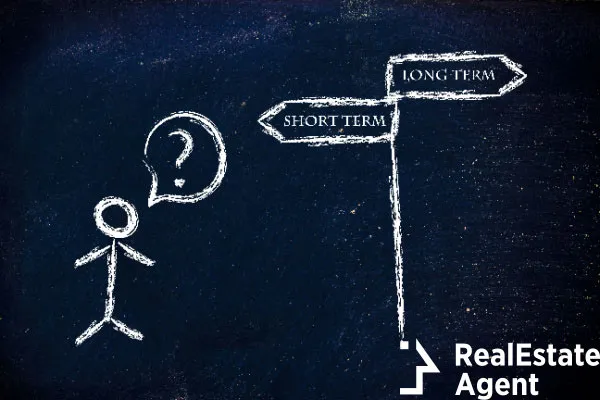 You can test your knowledge of long-term vs. short-term securities here! In other words, which of the following is not a money market instrument but a government-issued security?
You can test your knowledge of long-term vs. short-term securities here! In other words, which of the following is not a money market instrument but a government-issued security?
- Treasury Bills
- Treasury Bonds
- Repos
- Swaps
The correct answer is B! A US Treasury Bond is a debt obligation backed up by the credit and faith of the American government. They reach maturity in twenty to thirty years, so it’s long-term security. If you want to break the bank, first, you must know that you’ll receive interest semi-annually. At the same time, the principal is paid at full maturity.
Conclusion
Opening a money market account saves money you don’t use to pay bills. It can prove to be an essential financial aid in a metropolis. Or it can help you save cash for a down payment. For managing monthly bills, we recommend a traditional savings account instead. Your money market account will earn money depending on the bank’s APY (meaning interest rate.) But don’t expect a mind-blowingly high yield after your investment!
Everybody’s investment is liquid, meaning they can access it anytime! The longer you keep your investment in your account, and the greater your deposit gets, the higher your interest rate climbs. Your earnings come in smaller monthly dividends and the principal when the money market instruments mature.
Furthermore, a money market account brings the advantage of writing checks or getting a debit card for purchases or withdrawals. As a result, it offers a high degree of liquidity and flexibility for transfers and savings. Moreover, you can access your deposit anytime effortlessly! Don’t worry about safety! If your bank is FDIC insured, your investment is protected up to $250,000!
Before deciding which bank or credit union you open your money market account at, you should examine which institution requires a minimum deposit requirement. They may also need you to have a minimum balance (otherwise, you risk being charged a monthly fee.)
Did you open a money market account in your area? Did it live up to your expectations? We would like to know your feedback! If you’ve found this article resourceful, please like and share with your friends on social media!















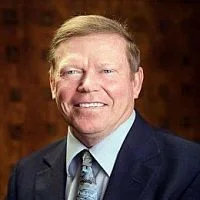
Have a question or comment?
We're here to help.